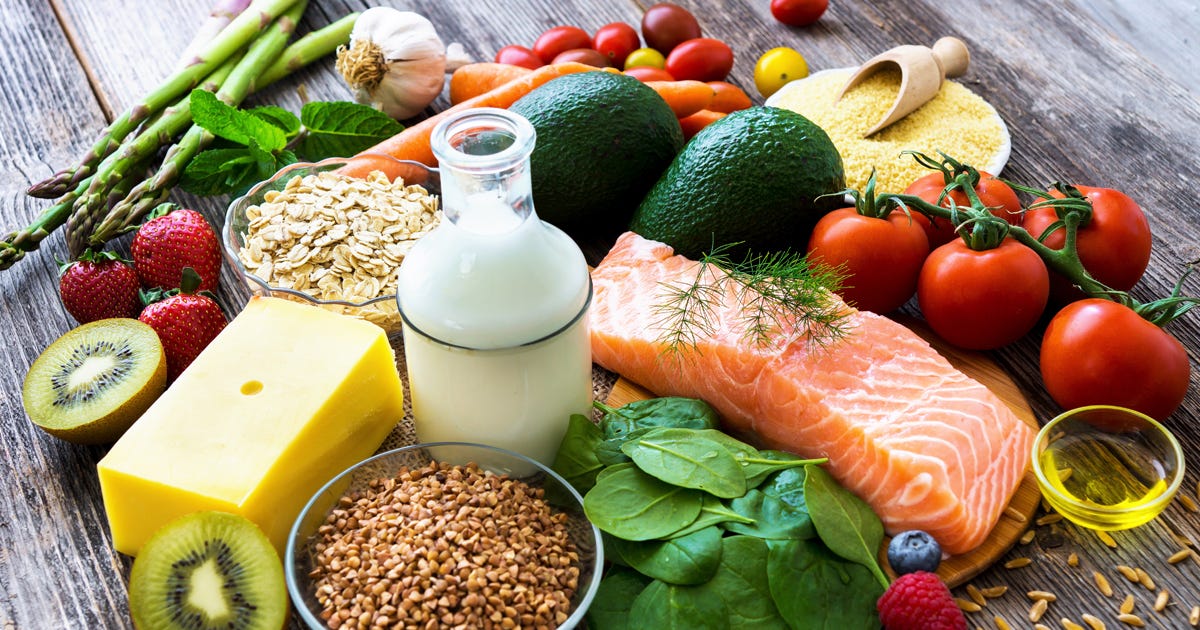Zoomacademia.com – Eating a balanced diet filled with nutritious foods is essential for maintaining good health and well-being. Certain foods stand out as particularly beneficial for the body, providing vital nutrients, promoting energy, and supporting overall wellness. In this article, we’ll explore some of the best health foods you can incorporate into your diet for optimal health.
1. Leafy Greens
Leafy greens, such as spinach, kale, and Swiss chard, are packed with vitamins, minerals, and antioxidants. They are low in calories and high in fiber, making them perfect for weight management. Leafy greens are rich in vitamin K, which supports bone health, and they contain folate, which is essential for cell function and tissue growth.
2. Berries
Berries like blueberries, strawberries, and raspberries are delicious and loaded with antioxidants. They help combat oxidative stress and inflammation in the body. Berries are also rich in vitamins C and K and provide fiber, which aids digestion and promotes heart health.
3. Nuts and Seeds
Nuts and seeds, such as almonds, walnuts, chia seeds, and flaxseeds, are excellent sources of healthy fats, protein, and fiber. They can help improve heart health, support brain function, and regulate blood sugar levels. Incorporating a variety of nuts and seeds into your diet can provide essential nutrients like magnesium, vitamin E, and omega-3 fatty acids.
4. Fatty Fish
Fatty fish like salmon, mackerel, and sardines are rich in omega-3 fatty acids, which are crucial for heart and brain health. These healthy fats can reduce inflammation and lower the risk of chronic diseases. Fatty fish are also an excellent source of high-quality protein and important vitamins and minerals, including vitamin D and selenium.
5. Whole Grains
Whole grains, such as quinoa, brown rice, and oats, are packed with fiber, vitamins, and minerals. They help improve digestion, regulate blood sugar levels, and reduce the risk of heart disease. Whole grains provide long-lasting energy and can be a great base for meals.
6. Legumes
Legumes like lentils, chickpeas, and black beans are fantastic sources of plant-based protein, fiber, and essential nutrients. They are low in fat and can help promote a healthy weight. Legumes are also rich in folate, iron, and potassium, making them an excellent addition to a balanced diet.
7. Avocados
Avocados are unique fruits that provide a wealth of health benefits. They are rich in healthy monounsaturated fats, which can help lower bad cholesterol levels. Avocados also contain potassium, which is important for heart health, and fiber, promoting digestion and satiety.
8. Greek Yogurt
Greek yogurt is a nutritious dairy option that is high in protein and probiotics. Probiotics support gut health and digestion, while protein helps build and repair tissues. Greek yogurt can be a versatile ingredient, great for smoothies, snacks, or breakfast bowls.
9. Sweet Potatoes
Sweet potatoes are a nutrient-dense carbohydrate source, packed with vitamins A and C, fiber, and antioxidants. They can help support immune function, improve vision, and promote healthy skin. Sweet potatoes are also a great alternative to regular potatoes and can be prepared in various delicious ways.
10. Dark Chocolate
Yes, you read that right! Dark chocolate (with a cocoa content of 70% or higher) can be a healthful treat. It is rich in antioxidants and has been linked to various health benefits, including improved heart health and better brain function. Enjoying dark chocolate in moderation can satisfy your sweet tooth while providing some nutritional benefits.
Conclusion
Incorporating these health foods into your diet can significantly enhance your overall well-being. A balanced diet that includes a variety of fruits, vegetables, whole grains, lean proteins, and healthy fats can provide your body with the nutrients it needs to thrive. Remember that moderation is key, and combining these foods with a healthy lifestyle will help you achieve your wellness goals.







